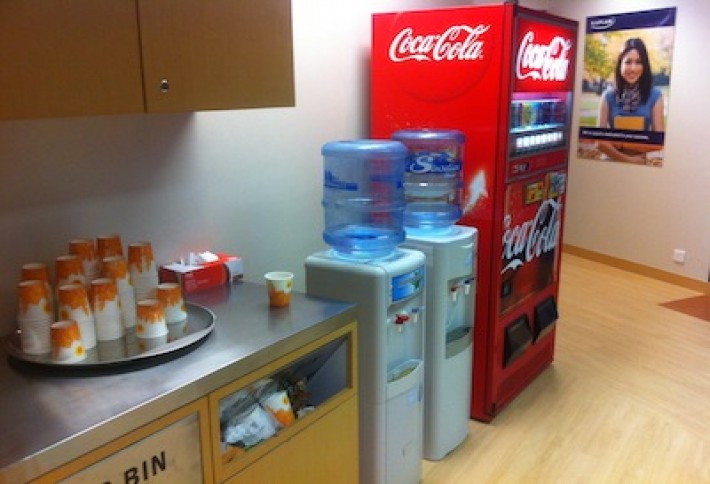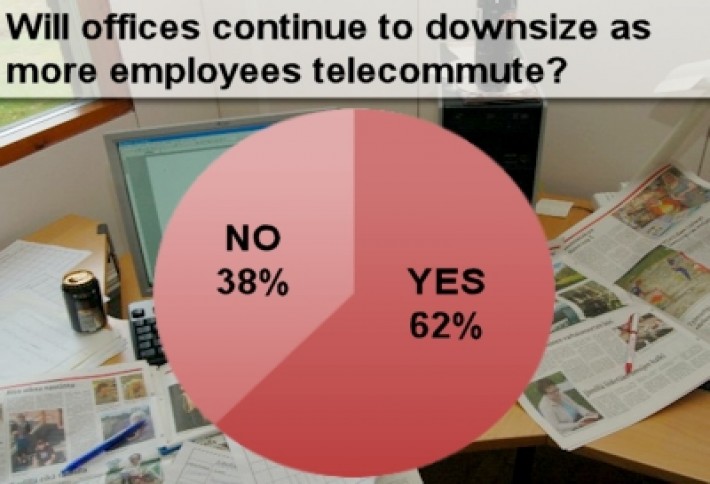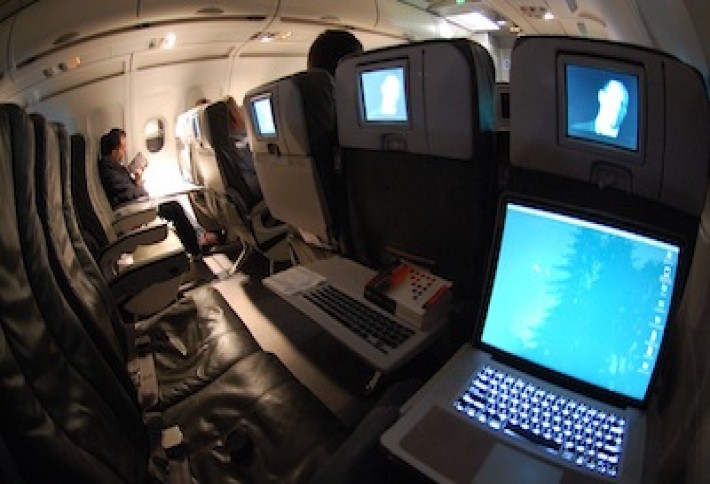Does Telecommuting Work?

When Yahoo's Marissa Mayer took a stand against working from home, we saw the pendulum change directions in the remote access debate. Almost two-thirds of you say offices will continue to downsize as more employees telecommute.
About 62% of you said offices will keep shrinking as more people get tired of putting on a suit. (Though Justin Timberlake's new track might stop that trend.) While tech companies are focused on creating fun and collaborative office environments that employees would never want to leave (perhaps building a bed under their desks a la George on Seinfeld), flexibility on hours and location are a top priority among those striving for work/life balance.
According to Telework Research Network, 64 million employees, or about half the US workforce, hold a job that's compatible with telecommuting. Here are some notable comments from you early adopters to the changing, wired workplace.
- "The younger generation will mandate this. They do not want the Boomers' way of life. They want a life. Not planning around travel times."
- "My corporation allows employees to work from home every day. Everything is in the cloud. Phone calls are forwarded to our cell phones, voicemails are sent to our emails. If we are out in the field, we can connect via our smartphones and access all of our proprietary systems."
- "Technology has allowed the 'home office' to be seamless to the customer (and company!)--the more flexible workers are allowed to be, the happier they are."

Others cannot shake the importance of personal interaction (and the water cooler) in collaboration, innovation, and creating a company culture. And when you gain the freedom to conference call while washing dishes, is your company losing dollars and cents?
- "People still have to interact. And people like to show off their shrinking bodies and cute clothes. The office will never die."
- "Many employers, with conservative management, are concerned with a loss in productivity and a disengagement with employees if they are not working on site."
- "It will place an increased focus on collaborative spaces and interactive training areas. Office build-outs are increasingly becoming more about quality v. quantity and companies are making sure they build 'smart' to allow for future changes in their workforce or business model."

Workplace expert John Challenger, CEO of Challenger, Gray & Christmas (in back, snapped at the Great Barrier Reef, not as we first thought, his new office), tells us companies are undoubtedly rethinking their space requirements, but it's still too early to tell how this will play out. While one study shows the number of telecommuters up 73% between 2005 to 2011, only 3.1 million people in 2011 considered home to be their primary place of work (that's 2.5% of the workforce). It's ironic that tech companies, whose employees are the most comfortable with remote access, are the most affected by a corporate culture being greater than the sum of its parts, John says.
Proximity breeds creativity, like-minded thinking, and trust. Some organizations have already compromised with hoteling, an office style favored by heavy-travel consulting companies and law firms that allows employees to find space and plug in at any office around the country. John predicts offices of the future are more likely to be gathering places filled with public functions, town meetings, and get-togethers with people you might not see every day anymore. (2,000 years later and we're back to the Roman Forum.) We'll have to wait and see, as companies tread carefully and deliberate this loss of corporate control.



